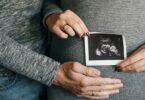Whether children were conceived naturally or through fertility treatments (egg or sperm donation or surrogacy), by the age of 20 their special history makes no difference to young adults’ mental health or relationship with their family – according to a long-term study from England led by Susan Golombok / University of Cambridge.
Fertility medicine
On 25 July 1978, Louise Brown was born in England, the first baby conceived in a laboratory with the help of a doctor. In recent decades fertility medicine (assisted reproduction, artificial insemination) has become increasingly important. Worldwide, around ten million children have been born after artificial insemination. Among them, there are also more and more children conceived after oocyte or sperm donation or through surrogacy.
How do these children live?
Are they mentally and physically healthy and do they grow up in the same way as naturally conceived children? Or do they have problems that may be due to the treatment?
Such questions are of particular concern to parents, but also to doctors and scientists who treat them. After all, treatment crosses natural boundaries, especially when it involves egg and sperm donation or surrogacy.
Health
In recent years, a number of studies have looked at these issues and the health of babies and children. Essentially, they have shown that fertility treatments are very safe, despite all the hormones and drugs that are needed.
There was a slightly increased risk of birth defects, but in absolute terms it was still very low. Other health problems that were observed were mostly due to parents’ health problems. It should be borne in mind that parents who need medical help to conceive a child often have health problems themselves or are older, which is often associated with poorer health. Experts believe this is the reason for the slightly increased risk of diabetes and cardiovascular problems in children from fertility treatment compared with their spontaneously conceived peers.
Research has found no differences in children’s cognitive development compared to their peers. Their academic performance was no worse than that of their peers.
But what about psychological wellbeing and family life?
Especially when considering egg or sperm donation, many prospective parents worry about how such a step might affect their future relationship with their children and the stability of their desired family. They may also wonder how the child will cope when he or she finds out about their special history.
A new long-term study from England will be of interest and reassurance to all parents of children born through egg or sperm donation or surrogacy.
The long-term study, led by Susan Golombok from the University of Cambridge, asked teenagers and young adults who had undergone IVF treatment about their family situation and how they had dealt with their special history from early childhood to adolescence. The study involved 65 families with children born through artificial insemination – 22 through surrogacy, 17 through egg donation and 26 through sperm donation. The families were followed for 20 years, from infancy to young adulthood.
The results showed that at the age of 20, there was no difference between children conceived through assisted reproduction and children conceived naturally in terms of psychological well-being or the quality of family relationships.
Love matters more than biology
Obviously, the situation is fundamentally different from that of families who have adopted children, for example. The authors of the study put this down to the fact that children born as a result of fertility treatment are raised from the very beginning by parents who wanted them and accept them as their own. They may have experienced ambivalent and difficult situations, but no different from naturally conceived children, have not been separated from their caregivers, but have been wanted and welcomed from the start. Biological kinship, it seems, is far less important for well-being than an intimate and secure bond between parents and children: it is love that counts, not genetics ❤
Communication is important
A small limitation was found among families with children conceived through sperm donation. Young adults conceived through sperm donation reported poorer family communication than those conceived through egg donation. According to the authors, this could be explained by the greater secrecy surrounding sperm donation compared to egg donation, partly because fathers are more reluctant than mothers to tell their child that they are not the genetic parent, and also more reluctant to talk about it once they have told. In fact, the researchers found that only 42% of sperm donor parents had talked about it by the age of 20, compared to 88% of egg donor parents and 100% of surrogate mother parents.
Early information
The study clearly shows that it is irrelevant for children whether they have a biological (genetic) link to a parent or not. However, it makes a big difference if, when and how the topic is discussed in the family. It seems immensely important to inform children as early as possible and in an age-appropriate way about their particular origins. If this does not happen until the children are over 7 years old, the risk of problematic parent-child relationships increases and mothers are more likely to suffer from anxiety and depression. Only 7% of mothers who had talked to their children by the age of 7 reported problems in their family relationships, compared with 22% of mothers who did not talk to their children until after the age of 7.
Product tipp Did you know that special children’s books have been designed by experienced psychologists for children aged 3- 6 to facilitate telling the children about their special story? E.g. there is “Our dearest gift” by Austrian psychologist Julia König for kids who were conceived by assisted reproductive medicine. Other books are designed for kids who were conceived by oocyte donation, surrogacy. Go to https://shop.fertilovit.com/books.aspx for an overview.
Further reading
Bergh C, Wennerholm UB. Long-term health of children conceived after assisted reproductive technology. Ups J Med Sci. 2020 May;125(2):152-157. doi: 10.1080/03009734.2020.1729904. Epub 2020 Feb 26. PMID: 32101068; PMCID: PMC7721037.
Golombok S, Jones C, Hall P, et al. A longitudinal study of families formed through third-party assisted reproduction: Mother-child relationships and child adjustment from infancy to adulthood. Developmental Psychol 2023. DOI.org/10.1037/dev0001526
Jadva V, Jones C, Hall P, Imrie S, Golombok S. ‘I know it’s not normal but it’s normal to me, and that’s all that matters’: experiences of young adults conceived through egg donation, sperm donation, and surrogacy. Hum Reprod. 2023 Mar 15:dead048. doi: 10.1093/humrep/dead048. Epub ahead of print. PMID: 36921279.
Wang C, Johansson ALV, Rodriguez-Wallberg KA, Almqvist C, Hernández-Díaz S, Oberg AS. Assisted Reproductive Techniques, ADHD, and School Performance. Pediatrics. 2021 Jul;148(1):e2020033183. doi: 10.1542/peds.2020-033183. Epub 2021 Jun 25. PMID: 34172555; PMCID: PMC8276593.
Chen Wang, Anna L. V. Johansson, Kenny A. Rodriguez-Wallberg, Mikael Landén, Catarina Almqvist, Sonia Hernández-Díaz, Anna S. Oberg. Long-term Follow-up of Psychiatric Disorders in Children and Adolescents Conceived by Assisted Reproductive Techniques in Sweden. JAMA Psychiatry. 2022;79(2):133-142. doi:10.1001/jamapsychiatry.2021.3647
Zhu JL, Basso O, Obel C, Bille C, Olsen J. Infertility, infertility treatment, and congenital malformations: Danish national birth cohort. BMJ. 2006 Sep 30;333(7570):679. doi: 10.1136/bmj.38919.495718.AE. Epub 2006 Aug 7. PMID: 16893903; PMCID: PMC1584372.






